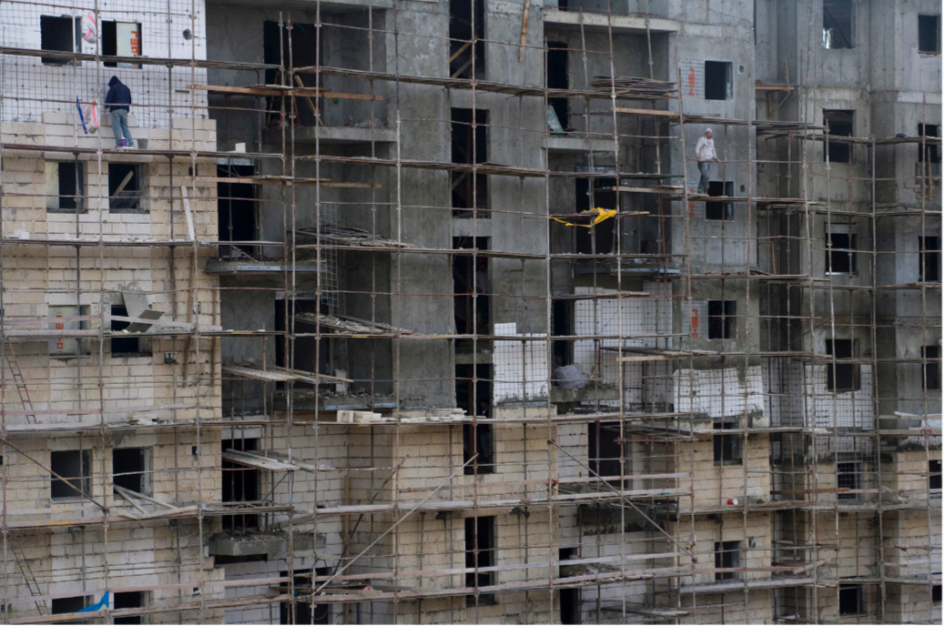Who Profit’s report Exploited and Essential: Palestinian Labour under Covid-19, studies the effect of existing structures of employment of Palestinian workers and their particular interaction with the Covid-19 crisis.
It firstly highlights the expansion of the surveillance regime through the Israel Civil Administration’s Al Munasseq application. The app compels users to accept the collection of private data, and access to the camera and microphone of their device, ‘for any purpose, including for military purposes” by the Israeli authorities.
During the lockdown, the application became mandatory to submit health checks necessary for Palestinian workers to enter settlements or territories within the green line.
To add up, the permit regime renders Palestinian workers extremely vulnerable to Israel political fluctuations and economic needs. The government is able to choose, through permit deliverance, the number of workers allowed to enter territories under Israel authority. On the other side, the politics of de-development of Palestinian territories conducted by Israel prevent the Palestinian economy to generate a sufficient amount of job to satisfy the economic needs of its population, forcing inhabitants of the West Bank to work for Israeli companies and submit themselves to the surveillance and permit regime.
Moreover, the Israeli economy depends upon Palestinian workers. Employing Palestinians is profitable for employers, who pay them 2.3% to 2.6% less than Israeli workers for equal tasks, and do not provide safe working conditions.
Since 2007, Palestinians employed within the green line are working under the same Israeli law as their Israeli co-workers. However, Palestinians working in settlements are still employed under the 1967 Jordanian labour law, which includes minimal protection. In the construction sector, Palestinian workers represent the majority of fatal casualties. In 2018, out of 38 construction workers who lost their lives while on the job, 31 were Palestinian; 16 from the occupied West Bank and 15 Palestinian citizens of Israel.
The vulnerability of Palestinian workers working for Israeli companies has been exacerbated by the Covid-19 crisis. As the Israeli construction market highly depends on Palestinian workers, those were allowed to continue to work, at the condition that they were not going home in the West Bank at the end of the day.
Proper sanitary conditions and accommodations were however not arranged. Workers were sleeping in large groups, in construction sites or warehouses on factory grounds, with no adequate facilities for the maintenance of basic hygiene. Lots of workers were contaminated on their workplace by Israeli co-workers who were allowed to leave at the end of the day. When sick, workers were simply sent back to the West Bank, without treatments. The sanitary crisis highlighted the lack of protection, vulnerability and disposability of Palestinian workers.
You can read the full report HERE
